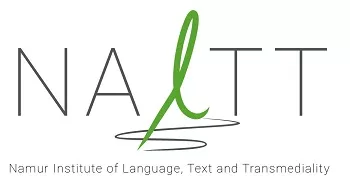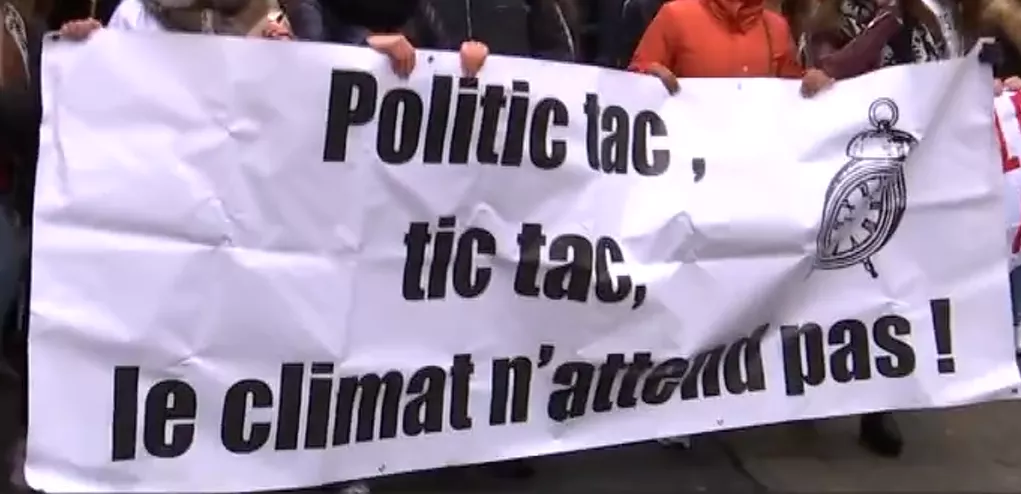
At the NaLTT (Namur Institute of Language, Text and Transmediality) research institute, the second quarter of the year was marked by four conferences devoted to language and its articulation with various current societal themes: computer science, sign language, climate change and childhood.
At the end of April, the NaLTT Institute welcomed Kristin Davidse (KU Leuven) and Anne-Marie Simon-Vandenbergen (UGent), two professors who are members of the Royal Flemish Academy, Wout Van Praet (UCLouvain, former doctoral student at UNamur) and Laura Degrande (UNamur) for a conference between climate change and linguistic analysis. A debate divided into two parts.
The first presentation, given by the invited researchers, aimed at analyzing citizens' communication towards climate action. Four main positions of citizens can be distinguished: activists, concerned citizens, sceptics and deniers. Stakeholders analyzed the words of these different profiles through letters to the editor in letters to the editor, comments on online news and social media, responses to open-ended questions in surveys, etc. Analytical tools used included polyphonic narrative analysis, discourse analysis, and evaluation analysis.
In the second part, Laura Degrande looked at the signs of the Belgian branch of the Youth for Climate movement that circulated during the youth protests in 2019 (the peak period of the mobilization). In her analysis, she presented three axes of these signs: their reflexive and sometimes paradoxical dimensions and their links to the ecofeminist movement.
Focus and analysis of some examples cited:

Politic tac, tic tac, le climat n'attend pas !
"By amalgamating the term "political" and the onomatopoeia "tic tac, tic tac", which mimics the sound of a clock in french, this slogan both reminds us of the imminence of the climate catastrophe and confronts the political class."
© Youth for Climate Liège © Bernard Gillet

Cop ou pas cop de tenir vos engagements
"We have here a hijacking of the expression "cap ou pas cap" ( "dare or dare not") and a reference to the COP (Conference of the Parties of the United Nations on climate change) which confronts the leaders and puts them face to face with their responsibility in terms of environmental policy.
© Youth for Climate Liège © Bernard Gillet

A diploma but no future?
"This slogan underlines the absurdity of academic success ("a diploma") within an environmental context that tends towards the absence of a future ("no future").
© Youth for Climate

Mettez la planète en retenue ! Elle sèche plus que nous !
"This focus on the educational issue is mocked. The verb "sèche" in French, which means either "dry up" or "skip school" and which is a syllepse here, articulates the school strike to the phenomenon of desertification by implying the insignificance of school absenteeism compared to the consequences of the environmental crisis."
© Youth for Climate Liège © Bernard Gillet

This planet needs you
"The young people pose as defenders of the environment and as spokespersons for a nature that has no voice. The structure here is a subject in the third person singular that refers to an inanimate entity related to the climate, as if the sign wanted to give a voice to this entity that needs to be protected, whether it is nature, the ocean, etc."
© Youth for Climate Liège © Bernard Gillet
Want to go deeper into the topic?
The NaLTT Research Institute
Composed of researchers in linguistics and literature, NaLTT (Namur Institute of Language, Text and Transmediality) constitutes an interdisciplinary space for diachronic and synchronic research on verbal and multimodal communicative practices that are manifested in, formed and/or regulated by culture and society.
NaLTT brings together researchers who specialize in the study of attitudes, language contact and conflict, translation, language policy and planning, reported speech and point of view, and the study of multimodality. The linguistic analysis of signed languages on corpus data is one of the original features of NaLTT within the LSFB Lab.